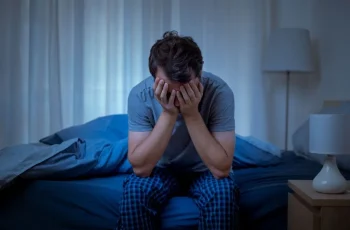Ad Blocker Detected
Our website is made possible by displaying online advertisements to our visitors. Please consider supporting us by disabling your ad blocker.
Loss of libido, defined as a reduced or absent sexual drive, affects approximately one in three women during their lifetime. It can occur at various stages, such as pregnancy, breastfeeding, menopause, or due to stress, and may be temporary or prolonged. This condition often leads to emotional distress, including stress, depression, and strained relationships, significantly impacting quality of life. While conventional treatments like hormone therapy or counseling are common, herbal remedies are increasingly explored as natural alternatives with potentially fewer side effects. However, their efficacy varies, and professional consultation is essential before use.

Causes of Loss of Libido
Female libido loss stems from a complex interplay of factors:
- Hormonal Imbalances: Fluctuations during pregnancy, menopause, or breastfeeding, or from surgeries like hysterectomy, can disrupt sex hormones.
- Psychological Factors: Stress, anxiety, depression, low self-esteem, or a history of abuse can diminish sexual interest.
- Chronic Diseases: Conditions like diabetes, cancer, arthritis, cardiovascular disease, or high blood pressure can impair sexual function.
- Infections: Reproductive system infections may cause pain or dryness, reducing libido.
- Medications: Antidepressants, contraceptives, or chemotherapy can suppress sexual drive.
- Substance Use: Regular alcohol consumption or drug use (e.g., marijuana, opioids) can lower libido.
Identifying the underlying cause is critical for effective management.
Symptoms and Psychological Impact
The primary symptom is a decreased interest in sexual activity, manifesting as fewer sexual thoughts, reluctance to engage in intimacy, or discomfort during sexual activity. This can lead to emotional challenges, including feelings of guilt, inadequacy, or depression. Relationship dynamics may suffer, as partners may misinterpret the lack of interest. Addressing both physical and emotional aspects through medical and holistic approaches is essential for recovery.
Conventional Treatments
Conventional treatments target the root cause:
- Hormone Therapy: Estrogen or testosterone supplementation for hormonal imbalances.
- Counseling: Therapy to address psychological factors like stress or depression.
- Medications: Treatments for underlying conditions or infections.
- Lifestyle Changes: Managing chronic diseases or reducing substance use.
These treatments are effective but may carry side effects, prompting interest in herbal remedies.
Herbal Remedies for Female Libido
Herbal remedies aim to enhance female libido by balancing hormones or improving genital blood flow. Their effectiveness varies, and potential side effects or drug interactions require medical consultation. Below are commonly explored herbs:
Ginkgo Biloba
Ginkgo biloba enhances blood flow to the genitals, potentially improving sexual function, especially in women on antidepressants. Available as capsules, tablets, or tea, it supports reproductive health but interacts with blood thinners. Follow dosage instructions carefully.
Maca
Maca root, a traditional aphrodisiac, has research supporting its ability to boost libido, particularly during menopause or antidepressant use. Take 1.5-3.5 grams daily as capsules, powder, or liquid extracts. Long-term effects are understudied.
Red Ginseng
Used in Chinese medicine, red ginseng may improve libido, though its mechanism is unclear. Available as capsules or tea, it’s generally well-tolerated but may cause indigestion or interact with blood thinners. Consult a doctor for dosing.
Saffron
Saffron, a mood-enhancing aphrodisiac, supports libido in women on antidepressants. Use sparingly in cooking or as capsules due to its cost. It’s generally safe but requires cautious use with other medications.
Tribulus Terrestris
Tribulus may boost testosterone production, enhancing sexual desire. Limited studies (e.g., 7.7 mg doses) suggest benefits. Available as capsules or extracts, it requires medical guidance to avoid side effects.
Ashwagandha
Ashwagandha increases nitric oxide, improving genital blood flow, and may balance sex hormones. Supplements are available, often recommended by homeopathic doctors. It’s generally safe but may cause mild digestive issues.
Fenugreek
Fenugreek seeds may stimulate sex hormone production, supporting libido. Available as capsules, powder, or extracts, it’s generally safe but can interact with antidepressants. Follow dosage guidelines.
Cinnamon
Cinnamon, an ancient aphrodisiac, may enhance genital blood flow, aiding hormone delivery. Add to foods or take as capsules, but avoid excessive use to prevent irritation.
Rosemary
Rosemary’s antioxidant and stress-reducing properties may support libido. Use in cooking or as supplements to alleviate anxiety-related libido loss.
Parsley
Parsley, with aphrodisiac properties, supports reproductive health. Blend into juice or use as supplements, but evidence for libido enhancement is limited.
Lifestyle Interventions
Lifestyle changes can significantly improve female libido:
- Exercise: Regular activity boosts mood and hormone levels.
- Diet: Foods rich in zinc, omega-3s, and antioxidants support sexual health.
- Stress Management: Yoga, meditation, or therapy reduces anxiety.
- Sleep: Adequate rest enhances hormonal balance.
- Substance Reduction: Limiting alcohol or drugs improves libido.
Importance of Medical Consultation
Herbal remedies carry risks of side effects (e.g., digestive issues, interactions with blood thinners) and may not suit all individuals, especially those with chronic conditions or on medications. Consulting a healthcare provider, ideally one knowledgeable in herbal treatments, ensures safe use tailored to the individual’s health profile, age, and libido loss cause.

Conclusion
Loss of libido affects one in three women, driven by hormonal, psychological, medical, or lifestyle factors. Herbal remedies like maca, saffron, and ashwagandha offer potential benefits by balancing hormones or enhancing blood flow, but their efficacy varies, and scientific evidence is often limited. Conventional treatments, lifestyle changes, and professional medical guidance are critical for comprehensive management. Women experiencing persistent libido loss should seek tailored advice to address causes and develop a safe, effective plan combining herbs, lifestyle adjustments, and medical interventions for optimal outcomes.



